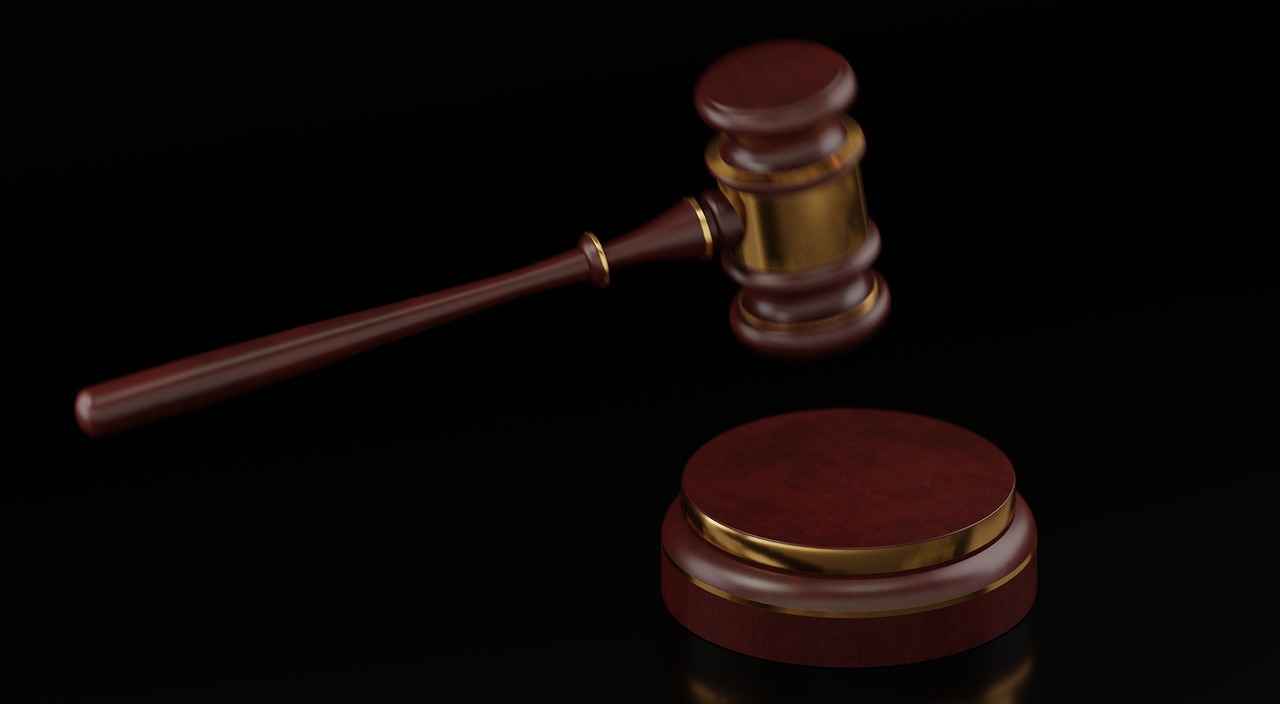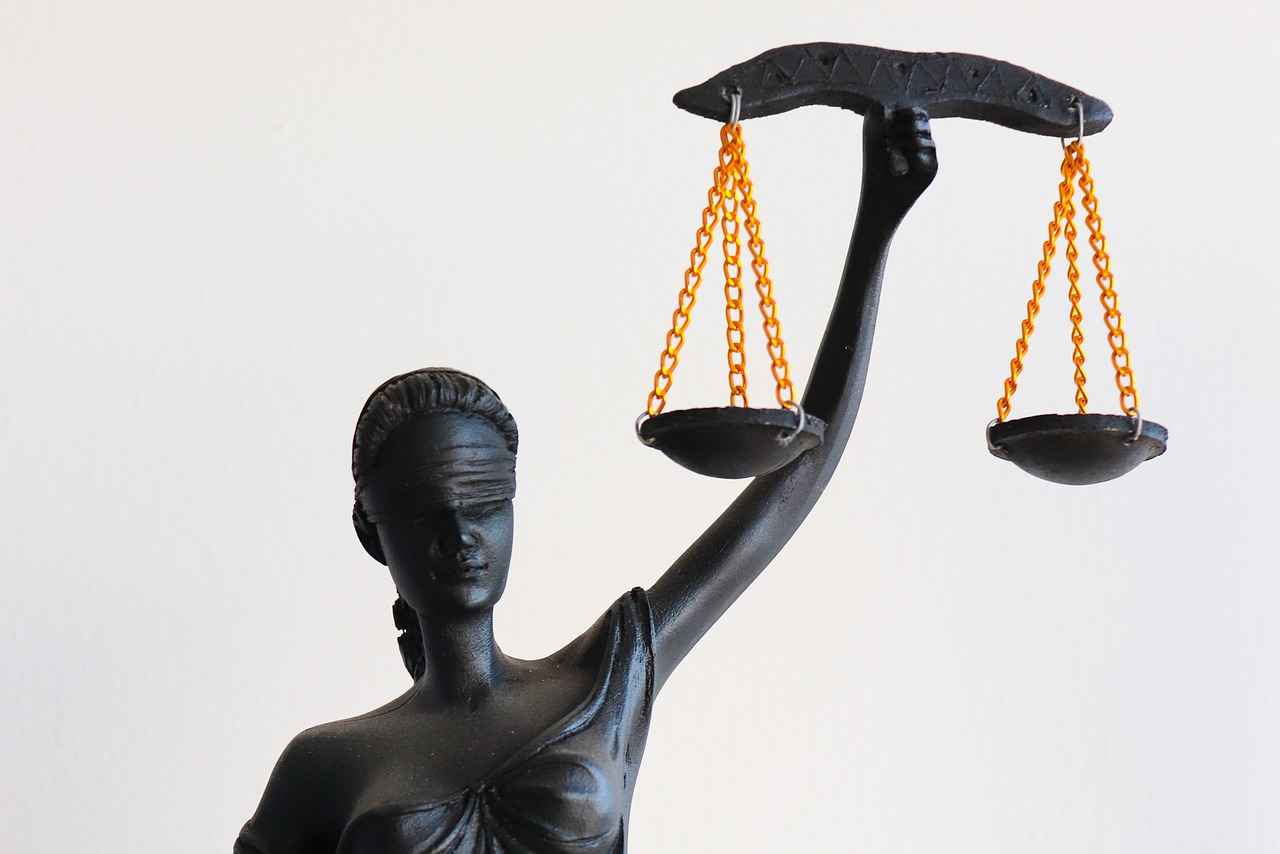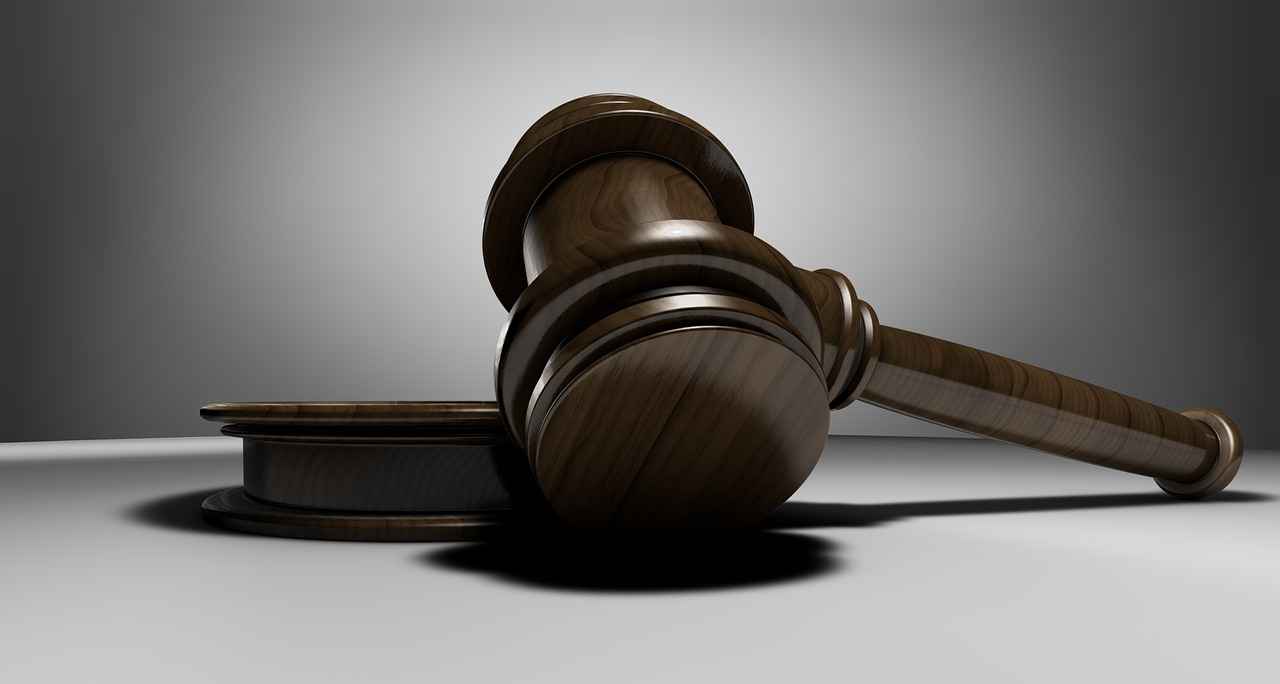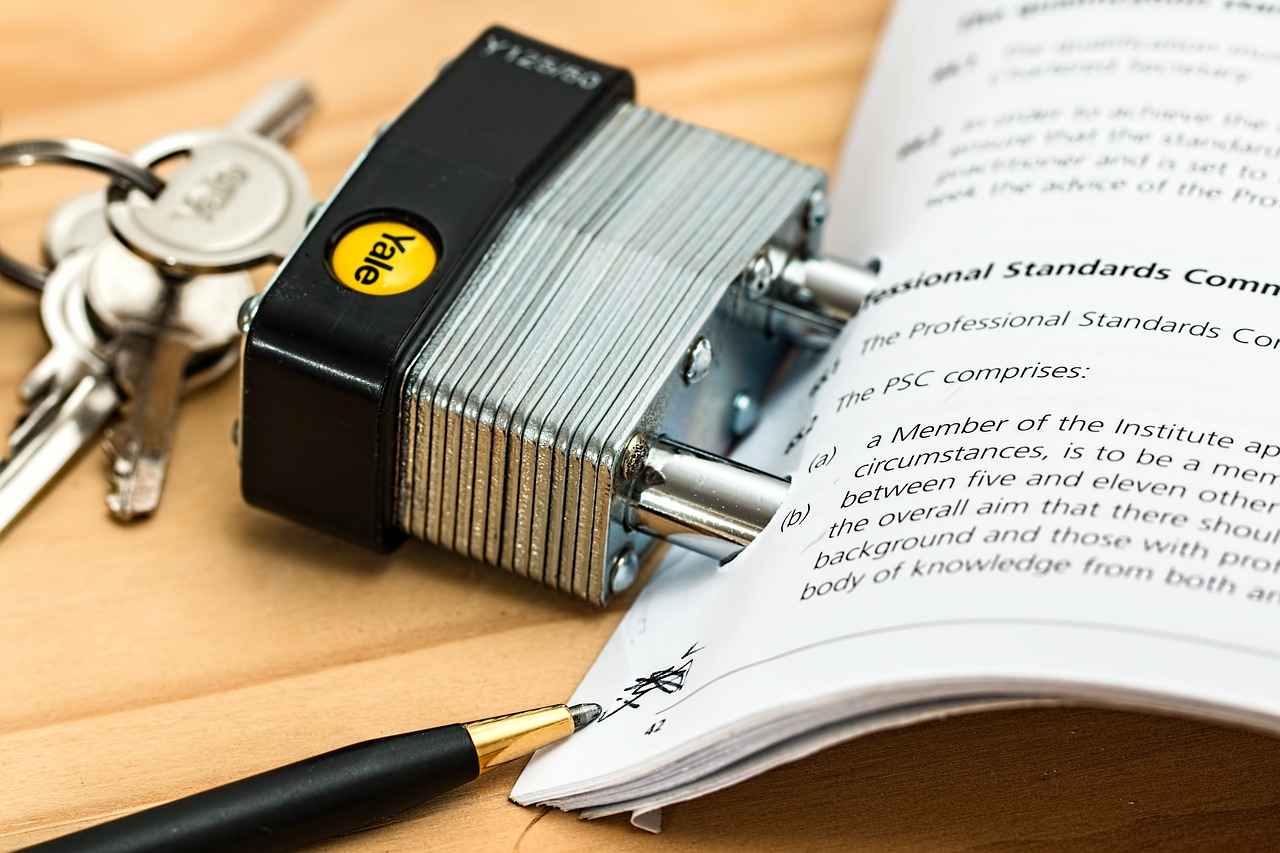This article explores the most common types of legal cases in the U.S. and provides expert guidance on finding qualified lawyers in major cities, including Saint Paul, Minnesota.
Understanding Personal Injury Cases
Personal injury cases are among the most frequent in the United States. They arise when an individual suffers harm due to someone else’s negligence. Common scenarios include car accidents, slip and fall incidents, and workplace injuries. To find a qualified personal injury attorney, consider the following:
- Experience: Look for attorneys who specialize in personal injury law and have a proven track record of successful settlements or verdicts.
- Referrals: Ask friends or family for recommendations, or check online reviews and ratings.
- Consultation: Schedule a free consultation to discuss your case and gauge the attorney’s expertise and approach.
Navigating Medical Malpractice Claims
Medical malpractice occurs when healthcare providers fail to meet the accepted standard of care, resulting in patient harm. Identifying a qualified medical malpractice attorney is crucial:
- Specialization: Ensure the attorney specializes in medical malpractice and understands the complexities of medical regulations.
- Track Record: Look for attorneys with a history of winning medical malpractice cases.
- Resources: An effective attorney should have access to medical experts who can support your case.
Breach of Contract Litigation
Breach of contract cases arise when one party fails to fulfill their contractual obligations. To find an attorney experienced in contract law:
- Industry Knowledge: Choose an attorney familiar with the specific industry related to your contract.
- Negotiation Skills: A good attorney should be adept at negotiation, as many breach of contract cases are settled out of court.
- Client Reviews: Research online testimonials and case studies to assess the attorney’s effectiveness.
Property Disputes and Real Estate Law
Property disputes can involve boundary issues, landlord-tenant conflicts, and zoning disputes. Finding a knowledgeable real estate attorney is essential:
- Local Expertise: Look for attorneys who are familiar with local property laws and regulations.
- Track Record: Assess their history of handling similar property disputes successfully.
- Consultation: Many attorneys offer free consultations to discuss your case and potential strategies.
Resolving Landlord-Tenant Disputes
Landlord-tenant disputes can escalate quickly and often require legal intervention. To find an attorney specializing in this area:
- Specialization: Ensure the attorney focuses on landlord-tenant law to navigate the complexities effectively.
- Local Knowledge: An attorney familiar with local housing laws can provide valuable insights.
- Client Feedback: Look for reviews from previous clients to assess the attorney’s effectiveness and communication style.
Understanding Defamation Law
Defamation involves false statements that harm an individual’s reputation. To find an attorney experienced in defamation cases:
- Specialization: Choose an attorney who specializes in media law or defamation cases.
- Litigation Experience: Ensure they have experience in handling defamation lawsuits, as these can be complex.
- Client Reviews: Research their success rate and client satisfaction through testimonials.
Employment Disputes and Labor Law
Employment disputes can arise from wrongful termination, discrimination, or wage issues. To find a skilled employment attorney:
- Specialization: Look for attorneys who specialize in employment law and have experience with your specific issue.
- Reputation: Check for any awards or recognitions in the field of labor law.
- Consultation: Many employment attorneys offer free consultations to discuss your case.
Product Liability Cases Explained
Product liability cases involve injuries caused by defective products. To select an attorney with expertise in this area:
- Experience: Look for attorneys who have successfully handled product liability cases.
- Resources: An effective attorney should have access to experts who can testify about product safety.
- Client Feedback: Research online reviews to gauge client satisfaction.
Wrongful Death Claims
Wrongful death claims arise when negligence or misconduct results in a person’s death. To find compassionate attorneys experienced in this area:
- Specialization: Ensure the attorney specializes in wrongful death cases.
- Empathy: Look for attorneys who demonstrate compassion and understanding during consultations.
- Success Rate: Research their history of settlements or verdicts in wrongful death cases.
Class Action Lawsuits: What to Know
Class action lawsuits allow groups of individuals to collectively sue for damages. To find attorneys specializing in class action cases:
- Experience: Choose attorneys with a proven track record in handling class action lawsuits.
- Resources: Ensure they have the necessary resources to manage large-scale litigation.
- Client Reviews: Look for testimonials from previous clients involved in class actions.
Criminal Defense: Assault and Battery
Assault and battery charges can have severe legal consequences. To find a qualified criminal defense attorney:
- Experience: Look for attorneys with a strong background in criminal defense.
- Reputation: Research their track record in defending similar charges.
- Consultation: Schedule a consultation to discuss your case and their defense strategies.
Understanding Drug Offenses and Legal Defense
Drug offenses encompass a wide range of illegal activities. To find experienced attorneys specializing in drug-related cases:
- Specialization: Choose attorneys who focus on drug offenses and understand the nuances of drug laws.
- Resources: An effective attorney should have access to experts in drug policy and law enforcement.
- Client Feedback: Research their success rate and client satisfaction through testimonials.
Family Law: Divorce and Child Custody Issues
Family law cases, including divorce and child custody, require specialized legal knowledge. To find attorneys who can assist with these sensitive matters:
- Specialization: Ensure the attorney specializes in family law and has experience with your specific issues.
- Empathy: Look for attorneys who show understanding and compassion during consultations.
- Client Reviews: Research online testimonials to gauge client satisfaction and success rates.

Understanding Personal Injury Cases
Personal injury cases are among the most common legal disputes in the United States. These cases arise when individuals suffer harm due to the negligence or wrongful actions of another party. Whether it’s a slip and fall accident, a car collision, or medical malpractice, victims often seek compensation for medical expenses, lost wages, and emotional distress. Understanding the intricacies of personal injury law is crucial for anyone looking to pursue a claim.
In personal injury law, the burden of proof lies with the plaintiff, meaning they must demonstrate that the defendant was negligent and that this negligence directly caused their injuries. This can involve collecting evidence, witness statements, and expert testimonies. The legal process can be complex, and having a knowledgeable attorney by your side can significantly impact the outcome of your case.
When searching for the right personal injury attorney, consider the following steps:
- Research Credentials: Look for attorneys with experience in personal injury law. Check their education, years of practice, and any specialized certifications.
- Read Reviews: Online reviews and testimonials can provide insight into an attorney’s reputation and success rate. Look for patterns in feedback regarding communication, professionalism, and case outcomes.
- Consult Multiple Attorneys: Schedule consultations with several attorneys to discuss your case. This will help you gauge their understanding of your situation and their approach to handling your claim.
- Ask About Fees: Most personal injury attorneys work on a contingency fee basis, meaning they only get paid if you win your case. Ensure you understand their fee structure and any additional costs that may arise.
- Evaluate Communication: Choose an attorney who communicates clearly and promptly. You want someone who will keep you informed throughout the legal process.
It’s also essential to be aware of potential red flags when hiring a personal injury attorney. Avoid attorneys who make unrealistic promises about the outcome of your case or those who pressure you into signing a contract without fully understanding the terms. A reputable lawyer will be transparent about the strengths and weaknesses of your case and will provide realistic expectations.
In conclusion, navigating personal injury cases requires careful consideration and the right legal representation. By conducting thorough research and asking the right questions, you can find an attorney who will advocate for your rights and help you achieve the compensation you deserve.

Navigating Medical Malpractice Claims
Medical malpractice claims are a serious aspect of personal injury law, arising when healthcare professionals fail to meet the expected standard of care, which results in harm to patients. These cases can be complex and emotionally charged, as they often involve life-altering injuries or even wrongful deaths. Understanding how to navigate this intricate legal landscape is crucial for those seeking justice and compensation.
To begin, it is essential to identify what constitutes medical malpractice. Generally, malpractice occurs when a healthcare provider’s actions deviate from the accepted norms of practice in the medical community. This can include misdiagnosis, surgical errors, improper treatment, or failure to inform patients of the risks associated with a procedure. If you suspect that you or a loved one has been a victim of such negligence, your first step should be to consult with a qualified attorney who specializes in medical malpractice.
When searching for a medical malpractice attorney, consider the following criteria:
- Experience: Look for attorneys who have a proven track record in handling medical malpractice cases. Their experience can significantly impact the outcome of your case.
- Specialization: Ensure the attorney specializes in medical malpractice law. This area of law requires specific knowledge of medical standards and practices.
- Reputation: Research the attorney’s reputation through online reviews, testimonials, and professional ratings. Websites like Avvo or Martindale-Hubbell can provide valuable insights.
- Consultation: Many attorneys offer free initial consultations. Use this opportunity to gauge their understanding of your case and their approach to handling it.
Moreover, understanding the legal process involved in medical malpractice claims is vital. These cases often require extensive investigation, including gathering medical records, expert testimonies, and possibly engaging medical professionals to establish the standard of care that was breached. An experienced attorney will know how to navigate these complexities and build a strong case on your behalf.
It is also important to be aware of potential red flags when selecting an attorney. Be cautious of lawyers who promise guaranteed outcomes, as no case can be assured of success. Additionally, avoid attorneys who lack transparency about their fees or those who do not communicate openly about the process and potential challenges you may face.
Lastly, consider the geographical location of your attorney. If you are in a major metropolitan area such as New York City, Los Angeles, or Chicago, you may have access to a wider pool of specialized attorneys. Local knowledge can be beneficial, as different states have varying laws regarding medical malpractice, including statutes of limitations that dictate how long you have to file a claim.
In summary, navigating medical malpractice claims requires careful consideration and thorough research when selecting an attorney. By focusing on experience, specialization, and reputation, you can find a qualified legal professional who will advocate for your rights and help you seek the compensation you deserve.

Breach of Contract Litigation
refers to situations where one party fails to meet their obligations as outlined in a legally binding agreement. Such failures can lead to significant financial losses and disputes that require legal intervention. Understanding the intricacies of contract law is essential for anyone involved in a breach of contract case. This section aims to provide valuable insights into finding experienced attorneys who specialize in contract law and litigation.
When seeking legal representation for breach of contract issues, it is crucial to look for attorneys with a strong background in contract law. These professionals should have extensive experience in handling similar cases, as they will be familiar with the complexities and nuances of contract disputes. Here are some effective strategies for finding the right attorney:
- Research Online: Utilize legal directories such as Avvo, FindLaw, or Martindale-Hubbell to locate attorneys who specialize in breach of contract cases. These platforms often provide client reviews, ratings, and detailed profiles that can help you make an informed decision.
- Check Credentials: Look for attorneys who are members of professional organizations such as the American Bar Association or local bar associations. Membership in these organizations often indicates a commitment to maintaining high professional standards.
- Seek Recommendations: Ask friends, family, or colleagues for referrals to reputable attorneys they have worked with in the past. Personal recommendations can provide valuable insights into an attorney’s effectiveness and approach.
- Consult Initial Meetings: Schedule consultations with potential attorneys to discuss your case. This initial meeting is an opportunity to assess their communication style, understanding of your case, and overall compatibility.
- Evaluate Experience: Inquire about the attorney’s experience specifically related to breach of contract cases. Ask about their success rate and whether they have handled cases similar to yours.
As you evaluate potential attorneys, it’s important to be aware of red flags that may indicate a lack of professionalism or competence. For instance, if an attorney is unwilling to provide references or has a history of disciplinary actions, these are significant warning signs. Additionally, be cautious of attorneys who guarantee specific outcomes, as no reputable lawyer can promise a particular result in legal matters.
In conclusion, finding the right attorney for breach of contract litigation involves thorough research and careful consideration. By focusing on attorneys with relevant experience, strong credentials, and positive client feedback, you can increase your chances of a favorable resolution to your case. Remember that effective communication and trust are key components of a successful attorney-client relationship, so take the time to choose wisely.

Property Disputes and Real Estate Law
Property disputes are a common issue that many individuals face in the realm of real estate law. These disputes can arise from various situations, including boundary disagreements, landlord-tenant conflicts, and issues related to property ownership. Understanding the complexities of property law is essential for anyone involved in a dispute, whether you’re a homeowner, a tenant, or a landlord.
When seeking a knowledgeable real estate attorney, it’s crucial to consider several factors. Here are some expert tips on how to find the right legal representation for property disputes:
- Research Local Attorneys: Start by searching for real estate attorneys in your area. Websites like Avvo and FindLaw provide lists of attorneys along with reviews and ratings.
- Check Credentials: Look for attorneys with experience specifically in real estate law. They should have a solid understanding of local property laws and regulations.
- Schedule Consultations: Most attorneys offer a free initial consultation. Use this opportunity to discuss your case and gauge their expertise and compatibility.
- Ask for References: A reputable attorney should be able to provide references from past clients. This can give you insight into their success rate and client satisfaction.
- Assess Communication Skills: Effective communication is key in legal matters. Ensure that the attorney can explain complex legal terms in a way that you understand.
In addition to these tips, it’s important to be aware of potential red flags when hiring a real estate attorney:
- Lack of Experience: Avoid attorneys who do not have a proven track record in handling property disputes.
- High Pressure Tactics: Be cautious of attorneys who pressure you into making quick decisions without fully understanding your options.
- Unclear Fee Structures: Ensure that you understand how the attorney charges for their services, whether it’s a flat fee or hourly rate. Lack of transparency can lead to unexpected costs.
Understanding the nature of your property dispute is also essential. For instance, boundary disputes often involve disagreements over property lines, which may require surveys and expert testimony. On the other hand, landlord-tenant conflicts can arise from issues such as unpaid rent, lease violations, or eviction processes. Each situation demands a tailored approach, and having an attorney who specializes in that area can make a significant difference.
In metropolitan areas like New York City, Los Angeles, and Chicago, the competition among attorneys can be fierce. Therefore, leveraging local resources such as community legal aid organizations or bar association referrals can also be beneficial. These organizations often have lists of qualified attorneys who specialize in real estate law.
Finally, staying informed about your rights as a property owner or tenant is crucial. Familiarize yourself with local landlord-tenant laws and property regulations to better understand your position in a dispute. This knowledge can empower you when discussing your case with an attorney and help you make informed decisions throughout the legal process.

Resolving Landlord-Tenant Disputes
Landlord-tenant disputes are common occurrences in the United States, often stemming from misunderstandings regarding lease agreements, property maintenance, or the eviction process. These conflicts can escalate quickly, leading to potential legal action if not addressed promptly and effectively. Therefore, it is crucial for both landlords and tenants to understand their rights and responsibilities under the law.
When seeking legal assistance for landlord-tenant disputes, it is essential to find an attorney who specializes in landlord-tenant law. Here are some practical steps to help you locate the right legal professional:
- Research Local Attorneys: Start by searching online for attorneys in your area who focus on landlord-tenant issues. Websites like Avvo and FindLaw provide listings of legal professionals along with client reviews and ratings.
- Check Credentials: Look for attorneys with specific experience in landlord-tenant disputes. Verify their credentials, including their education, years of practice, and any relevant certifications.
- Seek Referrals: Ask friends, family, or colleagues if they can recommend a qualified attorney. Personal referrals can often lead to trustworthy legal representation.
- Consult Local Bar Associations: Contact your local or state bar association for referrals to attorneys specializing in landlord-tenant law. They can provide valuable information and resources.
- Schedule Consultations: Many attorneys offer free initial consultations. Use this opportunity to discuss your case and evaluate the attorney’s communication style and expertise.
During your consultation, consider asking the following questions:
- What is your experience with landlord-tenant disputes?
- What is your approach to resolving conflicts?
- What are your fees, and how are they structured?
- Can you provide references from previous clients?
It is important to be aware of red flags when hiring an attorney. Avoid those who:
- Make unrealistic promises regarding the outcome of your case.
- Are unwilling to provide references or share their track record.
- Do not communicate clearly about fees and billing practices.
- Have poor reviews or a lack of online presence.
In addition to finding an attorney, consider alternative dispute resolution methods such as mediation or arbitration. These options can be less costly and time-consuming than traditional litigation, providing a more amicable resolution to conflicts.
In summary, resolving landlord-tenant disputes requires careful consideration and the right legal support. By following these guidelines, you can find a qualified attorney who will advocate for your rights and help you navigate the complexities of landlord-tenant law.

Understanding Defamation Law
Defamation is a legal term that refers to the act of making false statements about an individual or entity that can harm their reputation. In the United States, defamation is classified into two categories: libel, which refers to written statements, and slander, which pertains to spoken statements. Both forms of defamation can have serious consequences for the victim, including emotional distress, loss of income, and damage to personal and professional relationships.
To effectively navigate defamation law, it is crucial to understand the elements that constitute a defamation claim. Generally, a plaintiff must prove that:
- The statement was false.
- The statement was made with a certain degree of fault (negligence or actual malice).
- The statement caused harm to the plaintiff’s reputation.
Finding a qualified attorney who specializes in defamation cases is essential for anyone who believes they have been defamed. Here are some expert tips on how to locate the best legal representation:
- Research Online: Utilize legal directories such as Avvo or FindLaw to search for attorneys who focus on defamation law. Look for those with strong client reviews and high ratings.
- Check Credentials: Ensure the attorney has relevant experience in handling defamation cases. Membership in organizations like the American Bar Association or local bar associations can also be a positive sign.
- Consult with Peers: Asking friends, family, or colleagues for recommendations can lead you to trustworthy attorneys who have successfully handled similar cases.
- Initial Consultation: Many attorneys offer free consultations. Use this opportunity to discuss your case and gauge the attorney’s understanding of defamation law and their approach to handling such cases.
It is also important to be aware of potential red flags when hiring a defamation attorney:
- Lack of Experience: Avoid attorneys who do not have a proven track record in defamation cases, as this area of law can be particularly complex.
- Unclear Fee Structure: Be cautious of attorneys who do not provide a clear explanation of their fees and billing practices upfront.
- Poor Communication: If an attorney is unresponsive or fails to communicate effectively during the initial consultation, it may indicate a lack of professionalism.
In summary, defamation law is a vital area of legal practice that requires specialized knowledge and experience. By following the guidelines outlined above, individuals can find a competent attorney who will advocate for their rights and help protect their reputation. Remember, the sooner you seek legal counsel, the better your chances of successfully addressing any defamation issues you may face.

Employment Disputes and Labor Law
Employment disputes are a significant concern in today’s workforce, often stemming from issues such as wrongful termination, discrimination, and wage disputes. These matters can have profound implications on an individual’s career and financial stability. Therefore, understanding how to navigate these challenges is essential.
When faced with an employment dispute, the first step is to seek out a skilled employment attorney who can advocate for your rights. Here are some effective strategies to find the right legal representation:
- Research Local Attorneys: Start by searching for attorneys who specialize in employment law within your area. Websites like Avvo and FindLaw provide directories of lawyers along with ratings and reviews.
- Check Credentials: Look for attorneys with relevant experience in employment law. Verify their credentials, including their education, bar membership, and any certifications in labor law.
- Read Reviews: Client testimonials can offer insight into an attorney’s effectiveness. Look for reviews on independent platforms rather than just the attorney’s website.
- Ask for Referrals: Personal recommendations from friends, family, or colleagues can lead you to trustworthy attorneys. If someone has had a positive experience, it’s likely they can point you in the right direction.
- Schedule Consultations: Many attorneys offer free initial consultations. Use this opportunity to discuss your case and gauge whether the attorney is a good fit for your needs.
During your consultation, consider asking the following questions:
- What is your experience with cases similar to mine?
- What are your fees, and how do you structure your billing?
- What is your approach to resolving employment disputes?
- Can you provide references from past clients?
It’s crucial to be wary of certain red flags when selecting an attorney. Avoid those who:
- Promise guaranteed outcomes.
- Pressure you into making quick decisions.
- Have numerous negative reviews or complaints filed against them.
In addition, understanding the specific laws governing employment disputes in your state is vital. Each state has its own regulations regarding wrongful termination and discrimination, which can impact your case. Familiarizing yourself with these laws can help you communicate effectively with your attorney and strengthen your position.
Overall, finding the right attorney to handle employment disputes requires careful consideration and thorough research. By following these guidelines, you can increase your chances of securing a knowledgeable advocate who will fight for your rights in the workplace.

Product Liability Cases Explained
Product liability cases are a significant area of personal injury law, focusing on injuries sustained due to defective products. These cases can arise from various issues, including design defects, manufacturing flaws, and inadequate warnings or instructions. Understanding the complexities of product liability law is crucial for anyone who has been harmed by a defective product. If you find yourself in such a situation, selecting the right attorney is essential to effectively handle your claim.
When searching for a product liability attorney, consider the following factors:
- Experience and Specialization: Look for attorneys who specialize in product liability cases. Their experience will provide valuable insights into the nuances of these claims and the legal strategies that work best.
- Track Record: Research the attorney’s past cases and outcomes. A proven track record of successful settlements and verdicts in product liability cases can indicate their capability to handle your claim effectively.
- Client Reviews and Testimonials: Read reviews and testimonials from former clients. Positive feedback can help you gauge the attorney’s reputation and the level of satisfaction among their clients.
- Initial Consultation: Many attorneys offer free initial consultations. Use this opportunity to discuss your case and assess the attorney’s approach, communication style, and willingness to advocate for your interests.
- Fees and Payment Structure: Understand the attorney’s fee structure upfront. Most product liability attorneys work on a contingency fee basis, meaning they only get paid if you win your case. Ensure you are clear about any additional costs that may arise.
Additionally, it is important to be aware of common red flags when selecting an attorney:
- Lack of Communication: If an attorney is difficult to reach or does not respond promptly to your inquiries, it may indicate a lack of commitment to your case.
- Pressure Tactics: Be cautious of attorneys who pressure you into signing contracts or making quick decisions. A trustworthy attorney should provide you with the time and information needed to make informed choices.
- Unrealistic Promises: Avoid attorneys who guarantee specific outcomes or settlements. Legal cases can be unpredictable, and a reputable attorney will provide a realistic assessment of your case.
In addition to these considerations, familiarize yourself with the specific laws and regulations governing product liability in your state, as they can vary significantly. Understanding these laws will empower you to make informed decisions throughout the legal process.
In conclusion, navigating product liability cases can be complex and overwhelming. However, by taking the time to research and select a qualified attorney with expertise in this field, you can significantly improve your chances of obtaining the compensation you deserve for your injuries. Remember to prioritize experience, client feedback, and clear communication when making your choice.

Wrongful Death Claims
are a complex area of law that arise when a person’s death is caused by the negligence or misconduct of another party. This section aims to guide individuals in finding compassionate and experienced attorneys who specialize in wrongful death litigation. Understanding the intricacies of wrongful death claims is essential for navigating this challenging legal landscape.
When a loved one dies due to someone else’s actions, it can be a devastating experience. Families often face emotional turmoil and financial strain as they grapple with the loss. Wrongful death lawsuits serve as a means to seek justice and compensation for the damages incurred. These claims can arise from various situations, including car accidents, medical malpractice, workplace incidents, and defective products.
To find the right attorney for a wrongful death claim, consider the following steps:
- Research and Referrals: Start by asking friends, family, or colleagues for recommendations. Personal referrals can lead you to trustworthy attorneys who have a proven track record in wrongful death cases.
- Online Reviews and Ratings: Utilize online platforms such as Avvo, Lawyers.com, and Yelp to read reviews and ratings of potential attorneys. Look for those who have experience specifically in wrongful death claims.
- Consultation Meetings: Schedule initial consultations with several attorneys. This meeting is crucial for assessing their experience, approach, and compatibility. Many attorneys offer free consultations, allowing you to discuss your case without financial commitment.
- Experience and Specialization: Ensure that the attorney you choose has significant experience in handling wrongful death cases. Ask about their success rates and the types of cases they have managed in the past.
- Fees and Payment Structure: Discuss the attorney’s fee structure upfront. Many wrongful death attorneys work on a contingency fee basis, meaning they only get paid if you win the case. Clarify all costs involved to avoid surprises later.
In addition to these steps, it’s essential to look for certain credentials that indicate a qualified attorney. Membership in professional organizations such as the American Association for Justice or local bar associations can be a sign of an attorney’s commitment to their field. Furthermore, consider their reputation within the legal community and their ability to negotiate settlements or represent clients in court effectively.
When evaluating potential attorneys, be aware of red flags. If an attorney guarantees a specific outcome, it may indicate a lack of integrity or understanding of the legal process. Additionally, be cautious of attorneys who are unwilling to provide references or those who do not communicate openly about their strategies and fees.
In conclusion, finding the right attorney for a wrongful death claim requires thorough research and careful consideration. By following these guidelines, you can increase your chances of securing a compassionate and skilled legal professional who will advocate for your rights and help you navigate the complexities of wrongful death litigation.

Class Action Lawsuits: What to Know
Class action lawsuits are a significant aspect of the U.S. legal landscape, allowing groups of individuals with similar grievances to come together to seek justice and compensation. These lawsuits can arise from various issues, including consumer fraud, product liability, and corporate misconduct. Understanding how to navigate this complex legal terrain is crucial for those considering joining or initiating a class action.
To begin, it is essential to identify attorneys who specialize in class action cases. Here are some effective strategies to help you find the right legal representation:
- Research Law Firms: Look for law firms with a proven track record in handling class action lawsuits. Websites often showcase their previous cases and outcomes, which can provide insight into their expertise.
- Utilize Legal Directories: Websites like Avvo and FindLaw allow you to search for attorneys based on their specialties and geographic locations. These platforms can help you filter your search to find lawyers with experience in class action suits.
- Seek Recommendations: Personal referrals can be invaluable. Speak with friends, family, or colleagues who may have had experiences with class action lawsuits. Their insights can guide you to reputable attorneys.
- Check Credentials: When evaluating potential attorneys, look for their education, years of experience, and any notable achievements in class action litigation. Membership in professional organizations, such as the American Association for Justice, can also indicate a commitment to this area of law.
- Consultation Meetings: Many attorneys offer free initial consultations. Use this opportunity to discuss your case and gauge the attorney’s understanding and approach to class action lawsuits.
Once you have identified potential attorneys, it is important to understand the class action process. Here’s a brief overview:
1. **Filing a Complaint**: The process begins when a representative plaintiff files a complaint in court on behalf of the class.2. **Class Certification**: The court must certify the class, determining if the case meets specific criteria, such as commonality, numerosity, and adequacy of representation.3. **Discovery Phase**: Both parties gather evidence, which may involve extensive documentation and depositions.4. **Settlement Negotiations**: Many class action cases are settled out of court. If a settlement is reached, it must be approved by the court.5. **Trial**: If no settlement is reached, the case proceeds to trial, where a judge or jury will render a decision.
Understanding these steps is vital as they can significantly impact the outcome of the case. Furthermore, it is crucial to be aware of red flags when hiring an attorney for a class action lawsuit:
- Lack of Experience: Be wary of attorneys who do not have a background in class action cases. This area of law is complex and requires specialized knowledge.
- Pressure Tactics: If an attorney pressures you to sign a retainer or make quick decisions, it may indicate a lack of professionalism.
- Unclear Fee Structures: Ensure that the attorney clearly explains their fee structure. Class action attorneys often work on a contingency basis, meaning they only get paid if you win.
- Poor Communication: An attorney should be responsive and willing to answer your questions. If they are difficult to reach or do not communicate clearly, it may be a sign to look elsewhere.
In conclusion, class action lawsuits represent a powerful tool for individuals seeking justice against larger entities. By following these guidelines and being diligent in your search for a qualified attorney, you can enhance your chances of a successful outcome. Always remember that the right legal representation is crucial in navigating the complexities of class action litigation.

Criminal Defense: Assault and Battery
Assault and battery charges are serious offenses that can lead to significant legal repercussions, including hefty fines and imprisonment. Understanding the nature of these charges and the importance of having a qualified criminal defense attorney is crucial for anyone facing such allegations.
Assault generally refers to the threat of harm or the act of causing fear of imminent harm to another person, while battery involves the actual physical contact or harm inflicted upon another individual. Both offenses can be classified as misdemeanors or felonies, depending on the severity of the incident and the jurisdiction’s laws.
When seeking a criminal defense attorney for assault and battery cases, consider the following steps:
- Research Experience: Look for attorneys who specialize in criminal defense and have specific experience handling assault and battery cases. Their familiarity with local laws and court procedures can greatly benefit your case.
- Check Credentials: Verify the attorney’s educational background, bar association membership, and any additional certifications in criminal law. This information can provide insight into their qualifications.
- Read Reviews: Online reviews and testimonials from previous clients can be invaluable. They can give you a sense of the attorney’s reputation, communication style, and success rate in similar cases.
- Consultation: Schedule an initial consultation to discuss your case. This meeting allows you to assess the attorney’s approach, their understanding of your situation, and whether you feel comfortable working with them.
- Discuss Fees: Understand the attorney’s fee structure upfront. Some may charge a flat fee, while others bill hourly. Ensure you are clear on potential costs to avoid surprises later.
Additionally, be aware of red flags when selecting a criminal defense attorney:
- Overpromising Results: Be cautious of attorneys who guarantee specific outcomes. Legal cases can be unpredictable, and a reputable attorney will provide a realistic assessment of your situation.
- Lack of Communication: If an attorney is difficult to reach or does not communicate effectively during your initial interactions, it may indicate how they will handle your case.
- Pressure Tactics: Avoid attorneys who pressure you into making quick decisions or signing contracts without giving you ample time to consider your options.
In metropolitan areas like New York City, Los Angeles, and Chicago, there are numerous legal professionals available, making it essential to narrow down your options based on the specific expertise required for your case. Utilize legal directories, bar association referrals, and personal recommendations to find qualified attorneys in your area.
Ultimately, having a skilled attorney by your side can make a significant difference in the outcome of your assault and battery case. They will work diligently to protect your rights, build a strong defense, and navigate the complexities of the legal system on your behalf.

Understanding Drug Offenses and Legal Defense
Drug offenses encompass a wide range of illegal activities, from possession and distribution to manufacturing and trafficking of controlled substances. In the United States, drug laws vary significantly from state to state, leading to complex legal challenges for individuals accused of drug-related crimes. If you find yourself facing drug charges, it is crucial to seek the help of an experienced attorney who specializes in drug law.
When searching for a qualified drug defense attorney, consider the following steps:
- Research Specialization: Look for attorneys who focus specifically on drug offenses. These professionals will have a thorough understanding of the legal nuances and potential defenses related to drug charges.
- Check Credentials: Verify the attorney’s education, years of experience, and track record in handling drug cases. Look for attorneys who are members of legal organizations dedicated to drug law.
- Read Reviews and Testimonials: Online reviews can provide insight into an attorney’s reputation and success rate. Websites like Avvo, Martindale-Hubbell, and Google Reviews are good places to start.
- Consultation: Schedule a consultation to discuss your case. This meeting will allow you to assess the attorney’s communication style, knowledge, and approach to your situation.
- Ask About Strategies: Inquire about potential defense strategies. A good attorney should be able to explain how they plan to approach your case, including any possible plea bargain options.
In addition to these steps, it is essential to be aware of red flags when hiring a drug defense attorney:
- Lack of Experience: Avoid attorneys who do not have substantial experience in drug law. Inexperienced lawyers may not be familiar with the specific laws and defenses applicable to your case.
- High Pressure Sales Tactics: Be cautious of attorneys who push you to hire them immediately without allowing you to ask questions or consider your options.
- Vague Promises: Be wary of attorneys who make guarantees about the outcome of your case. Legal matters are inherently uncertain, and no attorney can assure a specific result.
Once you have found a qualified attorney, they will help you navigate the legal system, which may include:
- Understanding Charges: Your attorney will explain the specific charges against you and the potential penalties you face.
- Gathering Evidence: A skilled attorney will gather evidence to support your defense, including witness statements, expert testimony, and any relevant documentation.
- Negotiating Plea Deals: If appropriate, your attorney may negotiate a plea deal with the prosecution to reduce charges or penalties.
- Representing You in Court: If your case goes to trial, your attorney will represent you, presenting your defense and challenging the prosecution’s evidence.
In conclusion, navigating drug offenses requires a thorough understanding of the law and an experienced legal advocate. By following the steps outlined above and being vigilant about potential red flags, you can find a qualified attorney who will work diligently to defend your rights and help you achieve the best possible outcome in your case.

Family Law: Divorce and Child Custody Issues
When navigating the complexities of family law, particularly in cases of divorce and child custody, it is essential to seek legal representation that specializes in these sensitive areas. The emotional and financial stakes are often high, making it imperative to find an attorney who is not only knowledgeable but also compassionate. Here are some practical tips on how to find the right attorney for your family law needs.
- Research Local Family Law Attorneys: Start by researching local attorneys who specialize in family law. Websites such as Avvo or FindLaw can provide a list of qualified lawyers in your area, along with client reviews and ratings.
- Check Credentials: Look for attorneys who are members of reputable organizations, such as the American Academy of Matrimonial Lawyers (AAML) or the Family Law Section of the American Bar Association. These credentials indicate a commitment to ongoing education and professional standards.
- Schedule Consultations: Many attorneys offer free initial consultations. Use this opportunity to discuss your case and assess the attorney’s approach and understanding of your situation. Prepare a list of questions to gauge their experience with similar cases.
- Evaluate Communication: Effective communication is crucial in family law cases. Ensure that the attorney listens to your concerns and explains legal concepts in a way you can understand. A good attorney should keep you informed throughout the process.
- Understand Fees: Family law cases can be expensive, so it’s vital to understand the attorney’s fee structure. Ask about hourly rates, retainer fees, and any additional costs that may arise. Make sure you are comfortable with the financial arrangement before proceeding.
- Seek Referrals: Personal recommendations can be invaluable. Ask friends, family, or colleagues if they have had positive experiences with family law attorneys. Referrals from trusted sources can lead you to reliable legal representation.
- Look for Experience with Child Custody Issues: If your case involves child custody, find an attorney who has a proven track record in this area. They should be familiar with local laws and court procedures that can impact custody arrangements.
In conclusion, finding the right attorney for family law matters requires careful consideration and research. By following these steps, you can ensure that you are well-represented in your legal journey, whether it involves divorce, child custody, or related issues. Remember, the right attorney can make a significant difference in the outcome of your case.
Frequently Asked Questions
- What should I look for in a personal injury attorney?
When searching for a personal injury attorney, consider their experience, track record, and client reviews. You want someone who understands the nuances of personal injury law and has a history of winning cases similar to yours.
- How can I determine if I have a medical malpractice case?
If you believe a healthcare professional’s negligence caused you harm, consult with a specialized attorney. They’ll help assess the situation, review medical records, and determine if you have a valid claim.
- What are the common causes of breach of contract disputes?
Breach of contract disputes often arise from misunderstandings, non-performance, or failure to meet deadlines. It’s essential to have a clear contract and to consult an attorney if you believe a breach has occurred.
- How do I choose a real estate attorney?
Look for a real estate attorney with experience in property law and a solid understanding of local regulations. Recommendations from friends or online reviews can also guide you in making the right choice.
- What should I do if I’m facing a landlord-tenant dispute?
Document all communications and issues with your landlord or tenant. Then, seek legal advice from an attorney who specializes in landlord-tenant law to explore your options and protect your rights.
- How can I protect myself from defamation?
If you feel you’ve been defamed, gather evidence of the false statements and consult an attorney who specializes in defamation law. They can guide you on the best steps to take to protect your reputation.
- What should I do if I face wrongful termination at work?
If you believe you were wrongfully terminated, document everything related to your employment and termination. Then, consult an employment attorney to discuss your situation and explore your legal options.
- What constitutes a product liability case?
A product liability case arises when a defective product causes injury or harm. If you’ve been affected, consult an attorney who specializes in this area to evaluate your claim and guide you through the process.
- What steps should I take after a wrongful death incident?
First, ensure that you have support during this difficult time. Then, consult a compassionate attorney experienced in wrongful death cases to discuss your options for seeking justice and compensation.
- How do class action lawsuits work?
Class action lawsuits allow a group of people with similar claims against a defendant to sue collectively. If you think you have a case, reach out to an attorney who specializes in class actions to understand the process and your eligibility.
- What should I do if I’m charged with assault or battery?
Seek legal representation immediately. A qualified criminal defense attorney can help you understand the charges, potential consequences, and develop a defense strategy tailored to your situation.
- How can I find help for drug-related legal issues?
If you’re facing drug-related charges, it’s crucial to consult an experienced attorney who specializes in drug offenses. They can navigate the complexities of the legal system and advocate for your rights.
- What are the key considerations in family law cases?
Family law cases often involve sensitive issues like divorce and child custody. It’s essential to find an attorney who understands the emotional aspects and can provide strong legal support during this challenging time.














